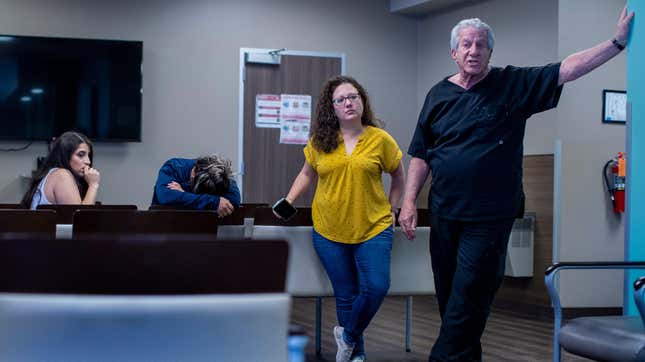Texas Now Faces a Confusing Patchwork of Anti-Abortion Laws
Frontera Fund, a South Texas abortion fund, was sending money to people who needed abortions until the early morning of the day Roe v. Wade fell.
AbortionPolitics

Cathy felt it in her gut: This would be the last day before Roe v. Wade was overturned. The 26-year-old Texan lives in the Rio Grande Valley of southern Texas and works as the organizational manager for Frontera Fund, an abortion fund. It was late Thursday night. She didn’t have anything to do but be at her computer.
The Supreme Court had unexpectedly added Friday as a decision day, “and I just felt it in my bones…that it was going to happen,” she told Jezebel. “So because of that, I was like, you know what? I’m going to stay awake and on this line as late as I possibly can, because as long as this wasn’t decided on, I’m going to fund abortions.”
Because of Cathy’s work, Frontera Fund was distributing money to people who needed abortions until roughly eight hours before the Supreme Court issued its ruling in Dobbs v. Jackson Women’s Health Organization.
“I helped someone at 10 p.m., helped someone at around 11 p.m., and I helped another person at 1 in the morning, just navigating what I could on explaining to them the situation at hand and why I’m calling them in the middle of the night,” Cathy, who is going by her first name for privacy reasons, told Jezebel. “Just really telling people I am sending you what you need so you can get to where you need to go because I do not know, do not feel that we would be able to help tomorrow so this has to be done.”
-

-

-

-

-

-

-

-

-

-

-

-

-

-

-

-

-

-

-

-

-

-

-

-

-

-

-

-

-

-

-

-

-

-

-

-

-

-

-

-








































